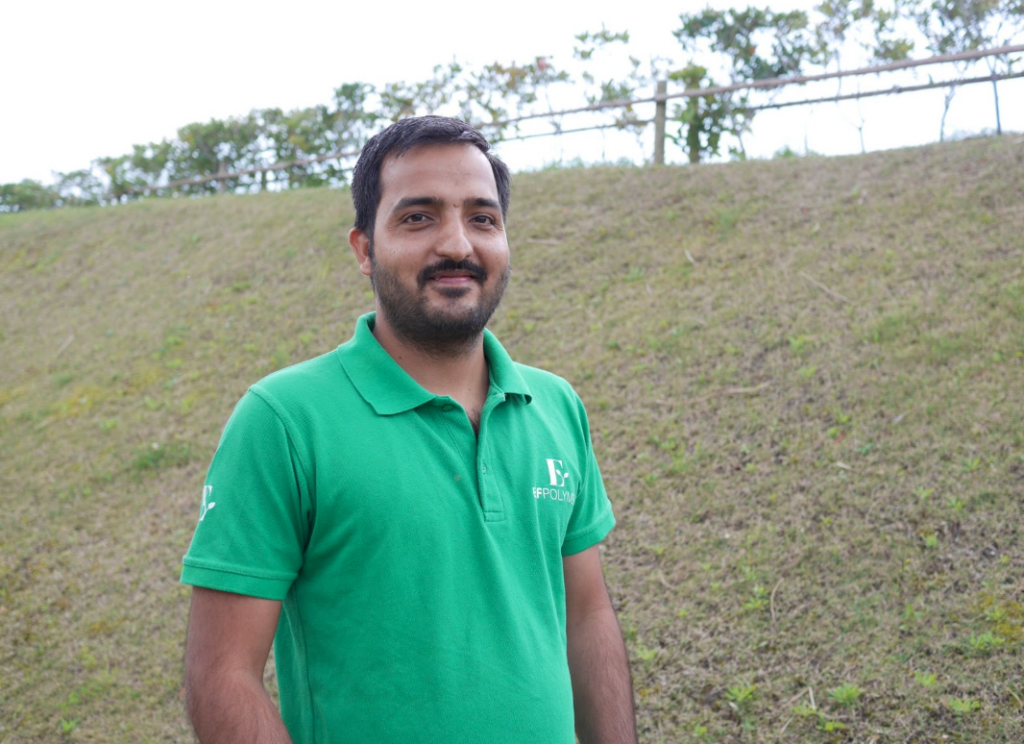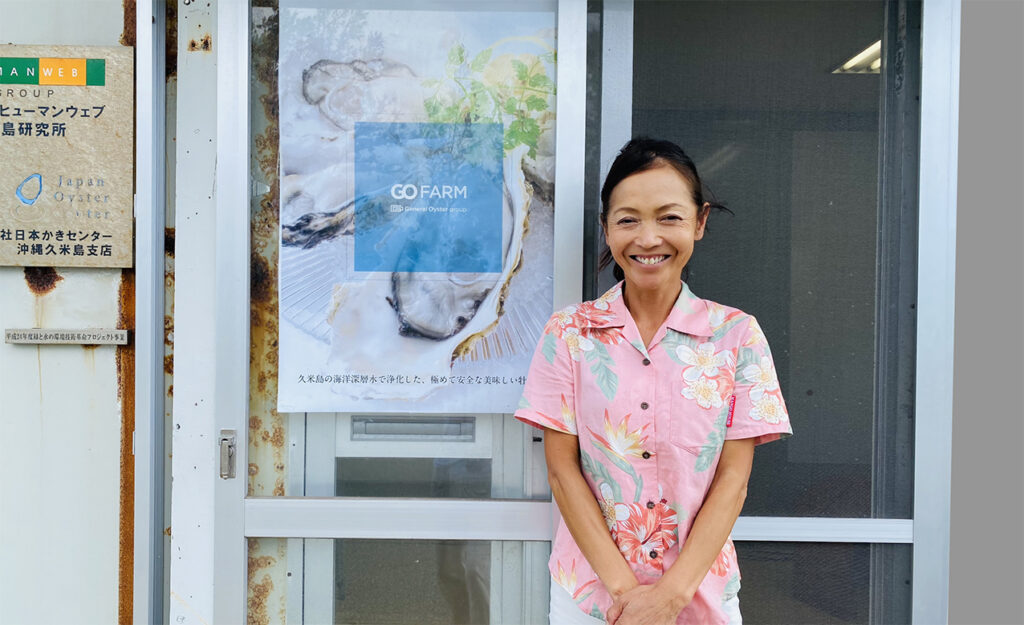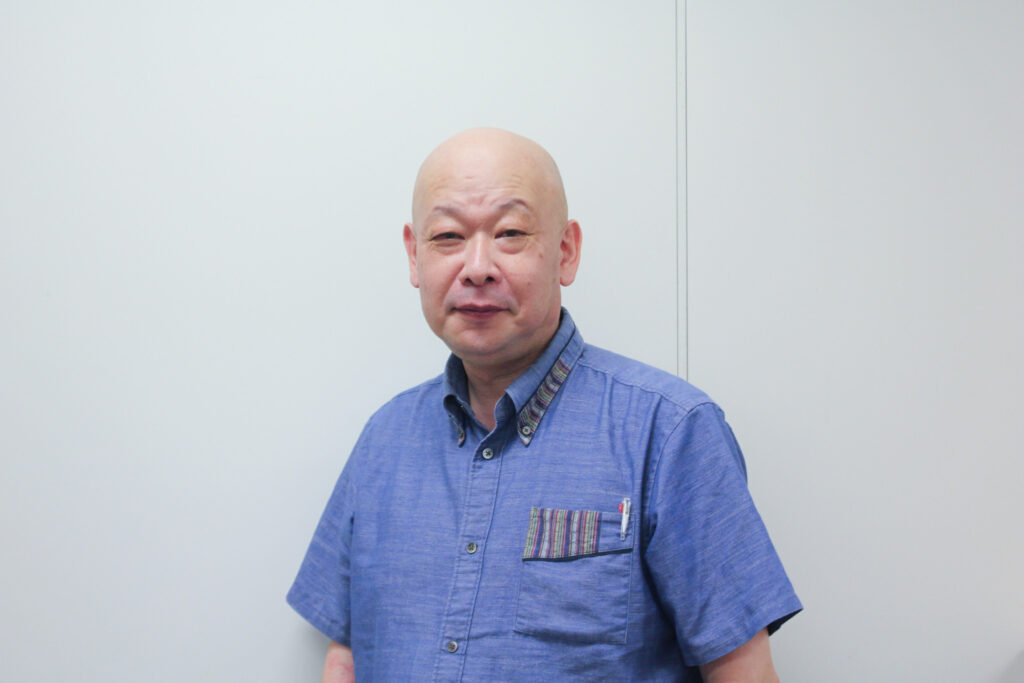Did you know that agriculture utilizes 70% of the world’s available freshwater?
In regions affected by drought, many farmers struggle with insufficient water, leading to decreased crop yields. EF Polymer Co., Ltd., a startup spun off from the Okinawa Institute of Science and Technology Graduate University (OIST), has successfully conducted research on the world’s first 100% organic water-absorbent polymer, aiming to address water shortages in agriculture. This startup is gaining attention as it aims for further business expansion through overseas expansion and collaboration with corporations. We spoke with Narayan Lal Garjha, the founder and CEO.
The inspiration for the research came from the water scarcity issues faced by farmers in dry regions
Narayan Lal Garjha, the founder and CEO of EF Polymer, started developing agricultural superabsorbent polymers (SAP) that are fully organic and completely biodegradable to assist farmers suffering from drought in his hometown of Rajasthan, India. He aimed to create an environment where agriculture could thrive even in water-scarce regions by finding sustainable solutions.
Superabsorbent polymers (SAPs) are polymer materials capable of absorbing many times their own weight in water. In the field of agriculture, these SAPs are expected to improve productivity and reduce water supply frequency by keeping the soil moist, especially in dry regions and during dry seasons when mixed into the soil.
While conventional products mostly use petroleum-derived polymers, which pose environmental concerns due to their non-biodegradability, Narayan focused on developing a completely organic and environmentally friendly polymer.
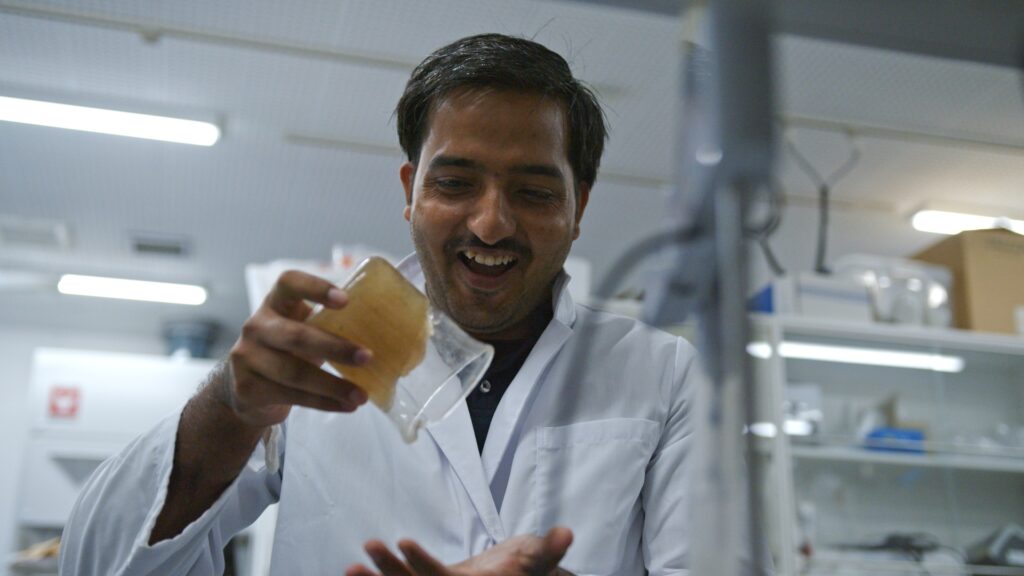
Aiming for “Farm to Sustainable Living”
EF Polymer’s vision is to establish “Farm to Sustainable Living” through the promotion of locally sourced, locally consumed products and the establishment of a circular economy model (this model aims to create a sustainable lifestyle that originates from agriculture.)
By manufacturing EF Polymer from agricultural residues collected locally, the company contributes to increasing farmers’ yields and incomes. Moreover, the polymer returned to the soil fosters the growth of new crops, creating a sustainable cycle.
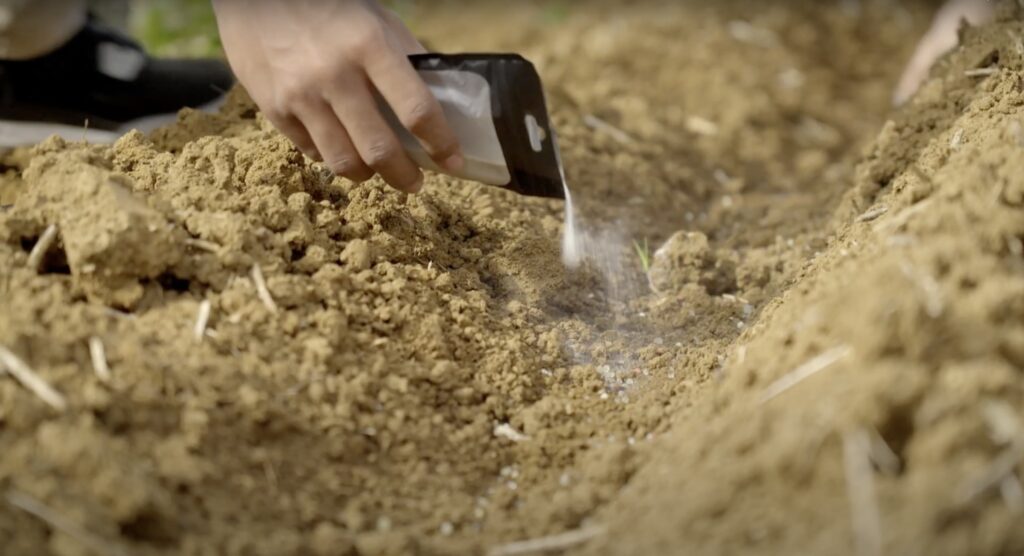
Being the first in the world to develop 100% organic water-absorbent polymers, the company aims to achieve truly sustainable agriculture by expanding this agricultural circular model worldwide.
Until EF Polymer is Instated
After majoring in agricultural engineering at university, Garjha ventured into entrepreneurship his sophomore year. Leveraging the scientific skills he had cultivated since childhood, he began the research on EF Polymer with experiments burying residues such as orange peels, banana peels, and sugarcane peels in soil. This research progressed gradually with the help of friends, including tasks like drying residues on the rooftop of student dormitories and sorting operations.
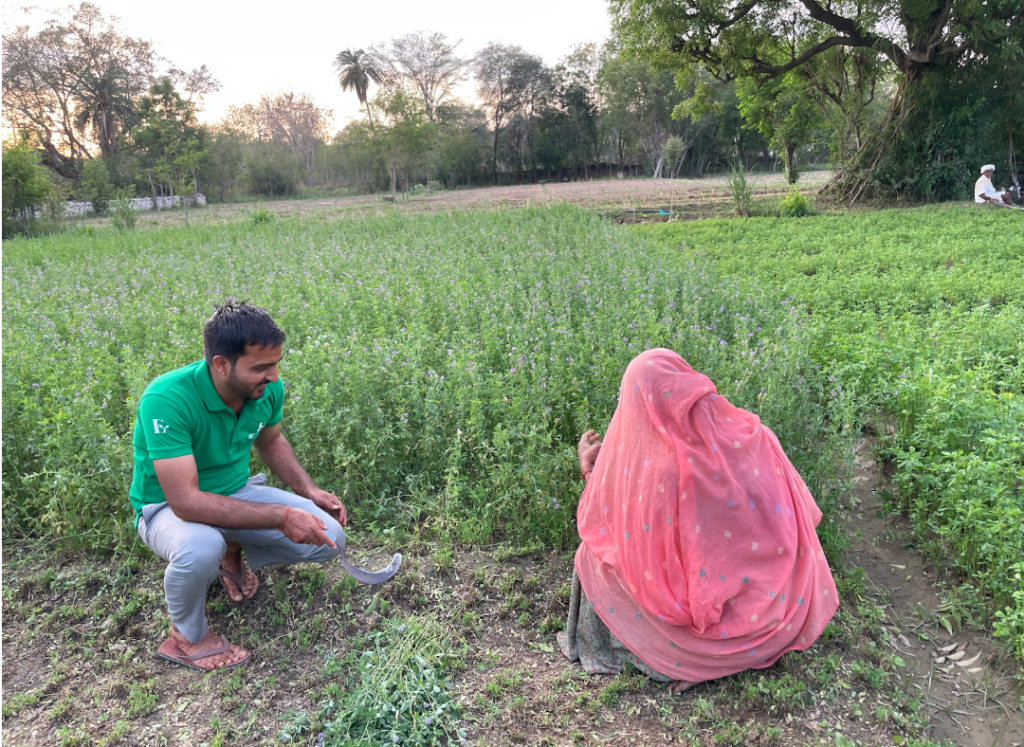
In 2019, when Narayan was 21 years old, a turning point occurred in his business. He was selected for the Accelerator Program at the Okinawa Institute of Science and Technology Graduate University (OIST), leading to his decision to move to Okinawa.
At that time, EF Polymer, which was still under development, benefited from access to the excellent research facilities at OIST and support in networking with local farmers and companies. Finally, the product was successfully commercialized, and the business gained momentum.
In April 2023, EF Polymer completed a Series A funding round, raising 550 million yen. The company also received several awards, including the Environmental Startup Minister’s Award from the Ministry of the Environment, the All-India Agriculture Startup Award (Rajasthan, India), and the Cleantech Group APAC Cleantech 25. Further business expansion is expected in the future.
The Differences from other Water-Absorbent Polymers and the Characteristics of EF Polymer
Narayan is “enthusiastic about spreading EF Polymer, which has significantly low environmental impact, to agricultural regions worldwide.” There are primarily three characteristics of EF Polymer:
Firstly, it enables sustainable agriculture. It is made by upcycling crop residues (such as orange and banana peels) that were traditionally discarded, undergoing cycles of water absorption and release over six months before completely returning to the soil within twelve months.
Secondly, it can retain water and fertilizers in the soil for extended periods, resulting in significant effects such as up to 40% reduction in water usage, up to 20% reduction in fertilizer usage, and a 15% increase in yield.
Furthermore, it leads to reduced watering labor for farmers, decreased fertilizer runoff, and mitigation of crop diseases. Although there are guidelines for application, there have been no reports of issues such as root rot due to excessive spraying.
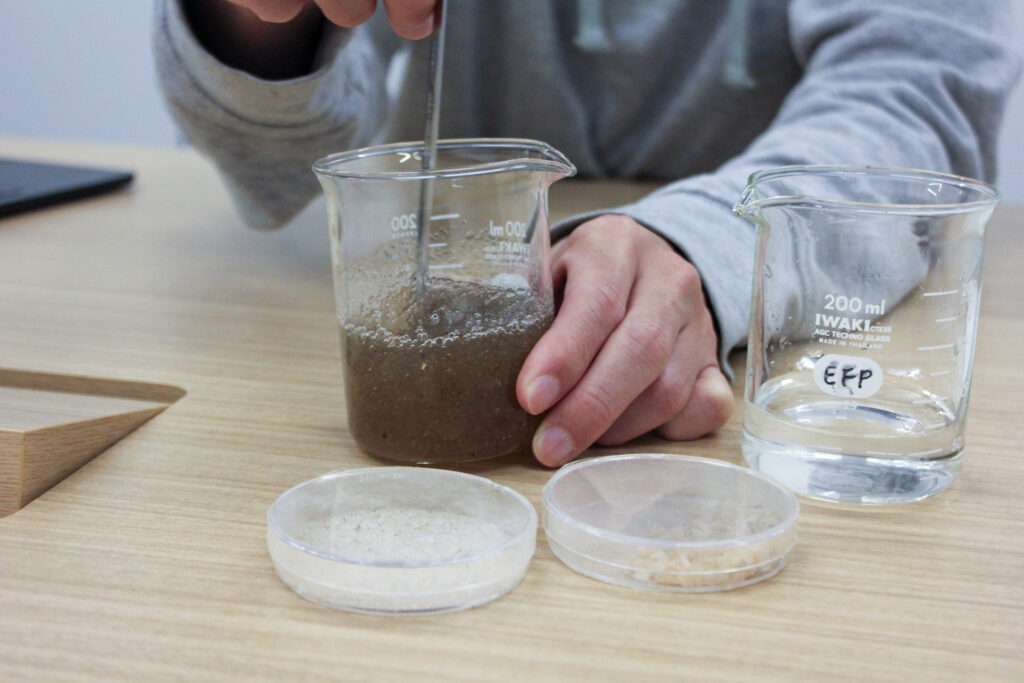
One reason farmers choose EF Polymer is its versatility, as it can be used on a wide range of crops such as fruits and grains, and can easily be combined with other agricultural products. Since 2021, the company has sold approximately 160 tons of EF Polymer globally. Despite being agricultural powerhouses, countries like the United States, France, and Thailand, which suffer from water shortages, have also adopted their products. The company has expanded its business to these regions. Demonstration experiment results on various crops, both domestically and internationally, are gradually being introduced on their website.
The potential and challenges of EF Polymer outside the agricultural sector
“Many products such as diapers, gel air fresheners, and cold packs use water-absorbent polymers, right? The potential for EF Polymer, which is 100% organic and can return to the environment, is significant, and we are currently collaborating with other companies on research and development for daily necessities and hygiene products,” Narayan explains.
From sanitary products and pet pads to shampoos, cosmetics, and soil moisture-retaining materials, even just a little research reveals the abundance of products that require water-absorbent polymers. Substituting these with environmentally friendly EF Polymer, which uses little or no petroleum, could lead to reduced environmental impact and help alleviate waste issues.
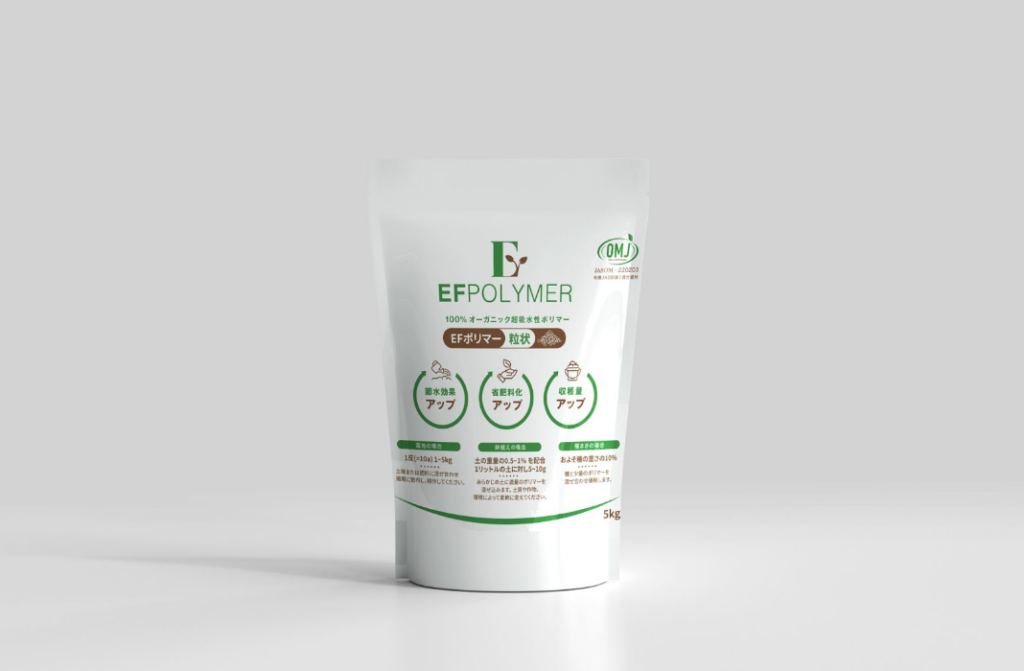
Although EF Polymer boasts remarkable achievements and potential, are there current challenges?
In response, Narayan states, “Our strength lies in addressing the environmental and sustainability challenges associated with existing polymers. However, continuous research and development and the lengthy cycles inherent in agriculture pose challenges unique to both the agricultural sector and startups.”
When transitioning from familiar agricultural products to new ones, it takes time to explain the benefits and usage methods of the product and verify its effectiveness. It can take six months to a year from EF Polymer application to increased harvest yields, and while the market potential is enormous once established, expanding sales channels can take time. Unlike fields with relatively fast cycles like IT, the agricultural environment requires time until repeat purchases.
Additionally, the company aims to develop locally sourced EF Polymer using crops grown in the region. As a startup starting from a small scale, there are concerns about resource shortages accompanying business expansion.
The Support of OIST, the Company’s Atmosphere
Supporting these challenges is OIST, which facilitated the company’s entrepreneurship in Japan. They received assistance not only through the Startup Accelerator Program’s research support but also in terms of support during the founding and relocation phases.
Currently, EF Polymer is housed in an office within OIST’s incubation facility. This facility provides functions such as shared offices and shared labs, allowing for collaborative research utilizing high-performance machinery.
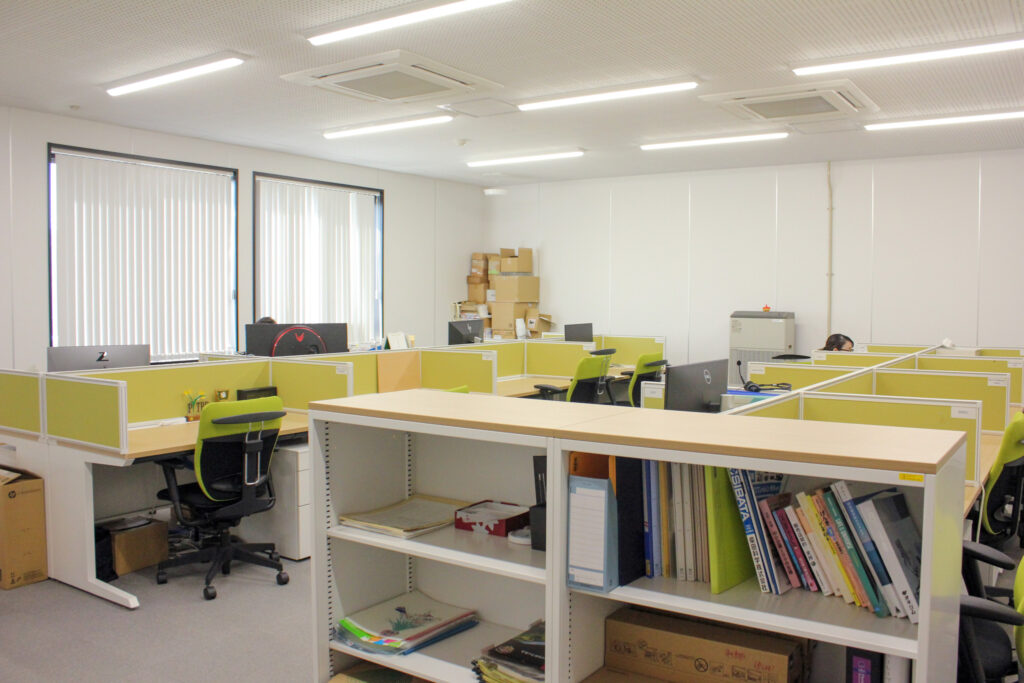
The diverse international composition of the team is a strong asset for startups like this that demand growth. Communication often occurs in English, fostering a multicultural atmosphere. Narayan remarks, “Many members resonate with my vision and join us. As the company grows, the team needs to expand as well. If you are interested in our products and vision, we welcome you to join us,” expressing enthusiasm for talent acquisition.
Outlook for the Future
Narayan explains, “If EF Polymer’s goal of achieving circular agriculture is realized, it will lead to the realization of a more sustainable agriculture in the long term. By using EF Polymer, production efficiency can be improved in many agricultural fields, and we may be able to reduce the number of producers struggling with global water shortages due to droughts and soaring fertilizer prices.”
EF Polymer, a promising startup company, is expected to make further contributions. We hope everyone in Okinawa will support them.

